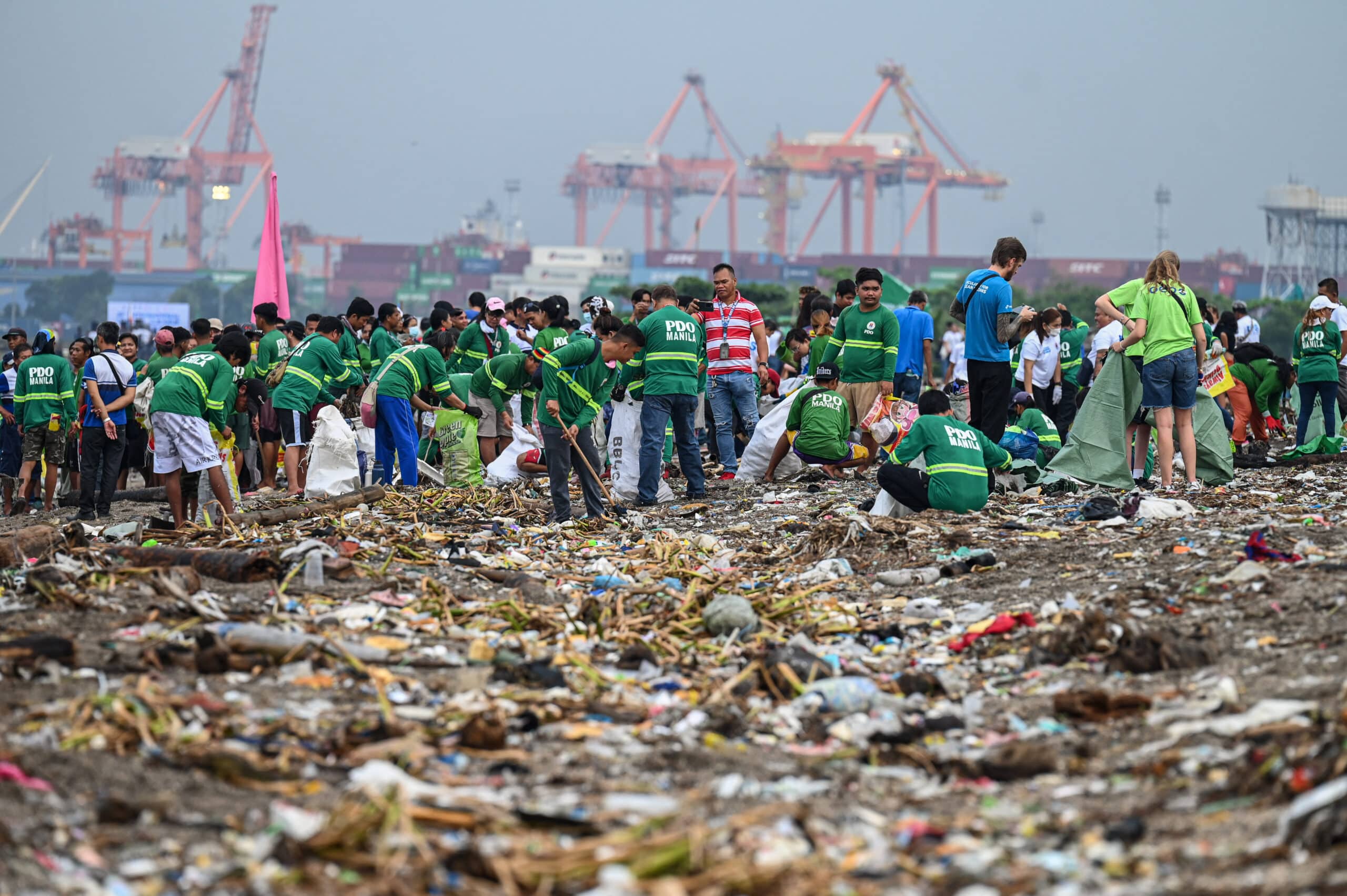
Volunteers choose up trash inclusing plastic waste as they take part in Worldwide Coastal Cleanup Day alongside Baseco Seaside in Manila on September 21, 2024. FILE PHOTO/Agence France-Presse
PARIS — The creating world wants trillions of {dollars} in local weather support, however who ought to pay for it? Rich nations? Huge polluters? International locations that obtained wealthy burning fossil fuels? All the above?
A combat over this query looms at essential negotiations subsequent month as China and different main rising economies come beneath stress to chip in for local weather motion in poorer nations.
It’s hoped a brand new deal might be struck on the UN COP29 local weather convention to tremendously carry monetary help to nations least in a position to scale back carbon emissions and adapt to international warming.
READ: Azerbaijan wins regional backing to host COP29 local weather summit
The current invoice of $100 billion a yr is footed by a listing of nations that had been the richest and most industrialized on the time the UN local weather conference was written up in 1992.
Article continues after this commercial
These donors — together with the US, the European Union, Canada, Japan and others — agree extra money is required, and intend to maintain paying “local weather finance” the place it’s wanted most.
Article continues after this commercial
However they need others to share the burden, particularly creating nations which have grow to be extra affluent and polluting within the a long time for the reason that unique donor listing was drawn up.
READ: US senator urges COP29 host Azerbaijan to free activists
China –- at the moment the world’s largest polluter and second-largest economic system –- is the plain goal, however Singapore and oil-rich Gulf states like Saudi Arabia may additionally come beneath scrutiny.
It’s “solely honest so as to add new contributing events, given the continued evolution of financial realities and capabilities”, the US wrote in an August submission to the UN Framework Conference on Local weather Change (UNFCCC).
‘Dangerous religion’
Diplomats from different developed nations have echoed this, arguing that the contributor listing is predicated on outdated notions of wealthy and poor, and anybody who will pay ought to pay.
Some have proposed revised standards towards which potential contributors is likely to be judged, akin to earnings ranges, buying energy or their emissions of planet-warming greenhouse gases.
Calls to widen the donor base are deeply unpopular and have sparked heated exchanges within the months earlier than COP29, which is being hosted in oil-and-gas-rich Azerbaijan, itself categorized as a creating nation.
Donors have been accused of forcing the matter onto the negotiating desk whereas refusing to interact on the central query of how a lot they intend to pay.
For some concerned “this was the literal definition of negotiating in unhealthy religion”, stated Iskander Erzini Vernoit from the Imal Initiative for Local weather and Growth, a suppose tank based mostly in Morocco.
It has “taken up a variety of airtime, and a variety of oxygen”, he informed AFP.
“For the sake of the entire poorest, most susceptible nations of the world, it’s not honest to carry the entire thing hostage.”
Creating nations are pushing for the strongest potential dedication at COP29 to make sure enough funding for clear power initiatives, defensive sea partitions and different local weather adaptation measures.
Negotiators are nowhere close to touchdown a concrete determine, however some creating nations are calling for over $1 trillion yearly.
In a UNFCCC submission in August, the EU warned “the collective aim can solely be reached if events with excessive GHG-emissions (greenhouse gasoline) and financial capabilities be a part of the hassle”.
Robust speak
For creating nations, who pays is non-negotiable: the 2015 Paris local weather settlement reaffirmed that developed nations disproportionately liable for international warming thus far choose up the tab.
In a joint assertion in July, China, India, Brazil and South Africa strongly rejected “makes an attempt by developed nations to dilute their local weather finance authorized obligations beneath worldwide legislation”.
Azerbaijan’s chief negotiator Yalchin Rafiyev informed AFP in September that the hole between the US and China over the problem was “narrowing”, with a “softening” of stances on each side.
China, like another creating nations, really pays local weather finance, it simply does so by itself phrases.
Between 2013 and 2022, China paid on common $4.5 billion a yr to different creating nations, the World Assets Institute (WRI) wrote in a September paper.
This amounted to roughly six % of what developed nations paid over the identical interval, stated the US-based suppose tank. China isn’t required to report this to the UNFCCC, and it isn’t counted towards the collective goal.
Analysts say any formal additions to the donor listing at COP29 are impossible, although some nations might comply with voluntary contributions in help of the broader aim.


